Welcome User
Relevance
(10 doctors)

Dr. Anindya Mondal
Psychiatrist
4 Years • MBBS, MD Psychiatry
Barasat
Diab-Eat-Ease, Barasat

Dr. Richa Kumari
Psychiatrist
10 Years • MBBS, DPM (Psychiatrist)
Bangalore
Apollo Clinic Bellandur, Bangalore
(175+ Patients)
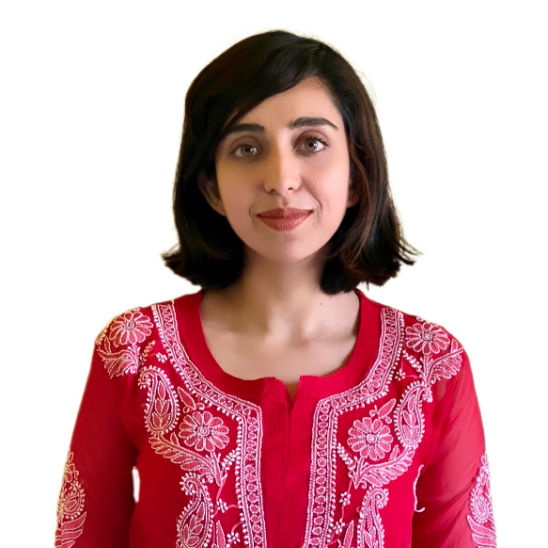
Miss. Deepti Acharya
Clinical Psychologist
6 Years • MSC Clinical Psychologist
Bangalore
Apollo Clinic Bellandur, Bangalore
Dr. Jey Subburaj
Counselling Psychologist
13 Years • M.Sc, Ph.D in Psychology
Bengaluru
Apollo Clinic Mahadevapura, Bengaluru
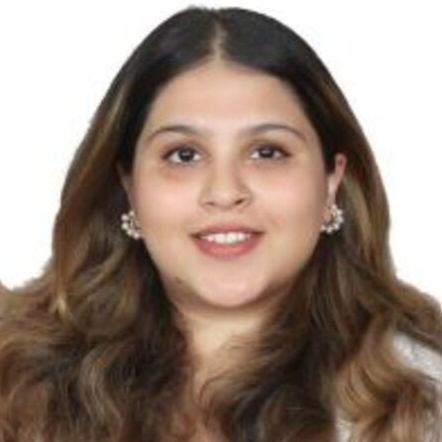
Miss. Aaliya Syeda
Psychologist
4 Years • MSc Clinical Health Psychology UNIVERSITY OF STRATHCLYDE
Bengaluru
Apollo Clinic, Indiranagar, Bengaluru
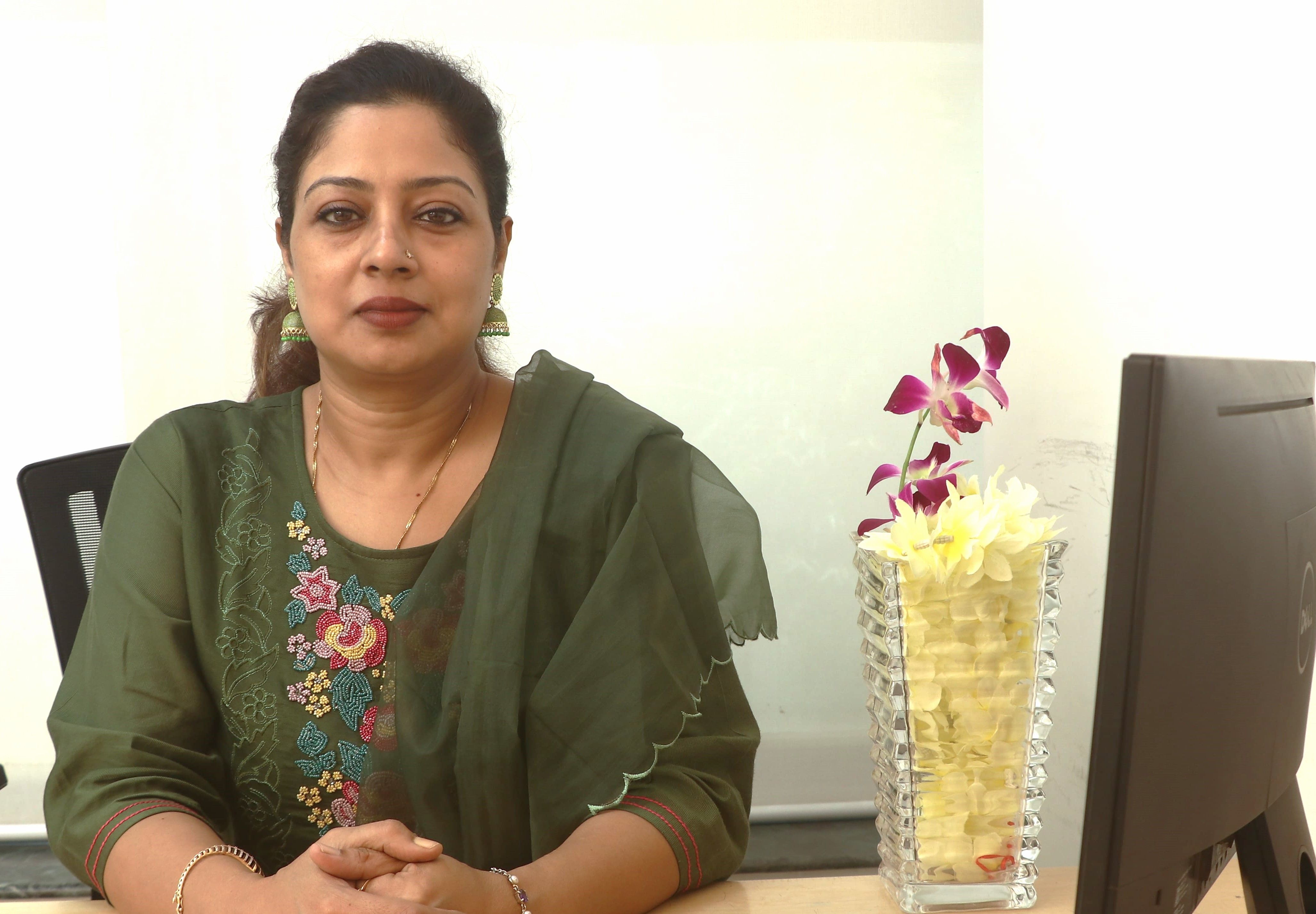
Dr. Sreystha Beppari
Psychologist
15 Years • MSc. PhD, Psychologist, CBT ( Beck Institute ) USA, REBT ( Albert Ellis Institute) New York, USA
Pune
Apollo Clinic, Viman Nagar, Pune
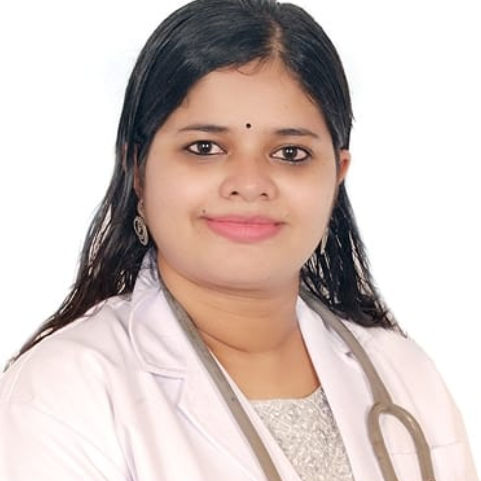
Dr. Supriya D Silva
Psychiatrist
6 Years • MBBS,DPM Diploma in Psychological Medicine, DNB (Psychiatry)
Bengaluru
Apollo Clinic, Sarjapur Road, Bengaluru

Ms Shweta Chhabra
Clinical Psychologist
10 Years • M.PHILL in clinical psychology, B.A in psychology, M.A in psychology,
Bengaluru
Apollo Medical Center, Marathahalli, Bengaluru
(25+ Patients)
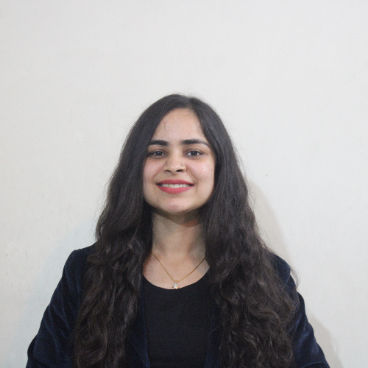
Miss. Ishita Attri
Clinical Psychologist
6 Years • MA Counselling Psychologist
Bangalore
Apollo Clinic Bellandur, Bangalore
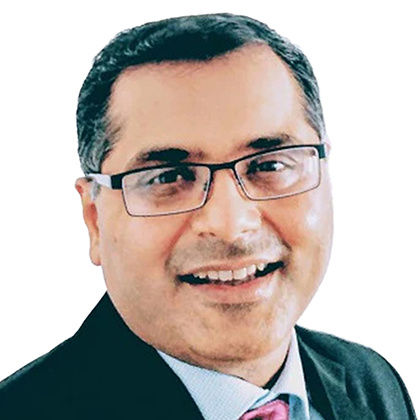
Dr. Jinesh Shah
Psychiatrist
20 Years • MBBS, MRCPsych (UK), CCT in Adult Psychiatry (UK), CCT in Child and Adolescent Psychiatry (UK), PG Diploma in Clinical Psychiatry (UK), Cert Hypnotherapy (UK).
Ahmedabad
Apollo Speciality hospital, Ahmedabad, Ahmedabad
(125+ Patients)
Book Consult for De-Addiction Management Online
Booking an appointment with a top addictionologist or rehab doctor is now easier than ever with Apollo 24|7. Our trusted online platform allows you to schedule online addictionologist consultations at your convenience. With a wide network of experienced behavioural health doctors, substance abuse psychiatrists, and doctors for alcoholism, you can access the expertise you need to overcome addiction. Our addictionologists are dedicated to providing comprehensive care for alcoholism and other substance use disorders. Book your online rehab doctor consultation today and take the first step towards recovery.
What is De-Addiction Management?
De-addiction management is a comprehensive approach to treating substance use disorders and addiction. This speciality focuses on the prevention, diagnosis, treatment, and long-term management of individuals affected by alcohol and drug addiction. De-addiction management encompasses a wide range of services, including detoxification, medical management of withdrawal symptoms, psychological assessments, pharmacological therapy, behavioural therapies, and ongoing recovery support. By addressing the complex nature of addiction, de-addiction management plays a crucial role in improving the quality of life for individuals struggling with substance use disorders and reducing the social and economic burdens associated with addiction.
Who is an Addictionologist?
An addictionologist is a medical doctor who has received specialised training and certification in the field of addiction medicine. In the Indian subcontinent, this typically involves completing a medical degree (MBBS) followed by additional training and certification in addiction medicine. The substance abuse psychiatrist specialises in the prevention, diagnosis, treatment, and management of patients with substance-related disorders. Behavioural health doctors are equipped to supervise medical detoxification, manage withdrawal symptoms, and develop comprehensive treatment plans that include medication-assisted treatment, behavioural therapies, and support for co-occurring disorders. Drug addiction doctors play a vital role in preventive healthcare by identifying and addressing substance use issues early and providing interventions to prevent the progression of addiction.
What Do Addictionologists Do?
Addictionologists or substance abuse psychiatrists are medical professionals who specialise in treating individuals with substance use disorders. As drug addiction doctors, they provide comprehensive care for those struggling with drug addiction and alcohol dependence. When you book an addictionologist, you can expect a thorough evaluation and a personalised treatment plan.
Some of the key responsibilities of an addictionologist include:
Conducting comprehensive assessments to diagnose substance use disorders and co-occurring mental health conditions
Supervising medical detoxification and managing withdrawal symptoms
Developing individualised treatment plans that include medication-assisted treatment, behavioural therapies, and ongoing support
Prescribing and monitoring medications to manage cravings, prevent relapse, and treat co-occurring disorders
Providing counselling and therapy to address the psychological and behavioural aspects of addiction
Collaborating with other doctors to ensure a holistic approach to treatment
Educating patients and their families about addiction, recovery, and relapse prevention strategies
What are the other Sub-Specialities of De-Addiction Management?
De-addiction management encompasses several sub-specialities that cater to the diverse needs of individuals with substance use disorders. These include:
Behavioural Therapy for Substance Abuse: This sub-speciality focuses on using evidence-based behavioural interventions to help individuals modify their thoughts, emotions, and behaviours related to substance use.
Cognitive Behavioural Therapy (CBT) for Addiction: CBT is a psychotherapeutic approach that helps patients identify and change dysfunctional thought patterns and behaviours that contribute to addiction.
Detoxification and Withdrawal Management: This sub-speciality involves the medical management of withdrawal symptoms and the process of safely removing toxins from the body.
Group Therapy and Support Groups: These sub-specialities utilise the power of peer support and shared experiences to foster recovery and maintain sobriety.
Individual Counseling for Addiction: This sub-speciality provides one-on-one therapy sessions to address the unique needs and challenges of each patient in their recovery journey.
Family Therapy in Addiction Treatment: Family therapy focuses on improving communication, resolving conflicts, and building a supportive environment for the individual in recovery.
Relapse Prevention Strategies: This sub-speciality involves teaching patients coping skills, stress management techniques, and other strategies to maintain sobriety and prevent relapse.
Medications for Addiction Treatment: Pharmacotherapy, including the use of methadone and buprenorphine, is a sub-speciality that involves the use of medications to manage withdrawal symptoms, reduce cravings, and support recovery.
Psychological Assessment and Diagnosis: This sub-speciality involves the use of psychological tests and evaluations to diagnose substance use disorders and co-occurring mental health conditions.
Dual Diagnosis Treatment: This sub-speciality focuses on the integrated treatment of individuals with both substance use disorders and mental health conditions, such as depression or anxiety.
Holistic and Alternative Therapies in Addiction Recovery: This sub-speciality incorporates complementary therapies, such as yoga, meditation, acupuncture, and art therapy, to support the overall well-being of patients in recovery.
What are the Examinations Conducted Under De-Addiction Management or Tests Performed by an Addictionologist?
The rehab doctors perform various examinations and tests to diagnose substance use disorders, assess the severity of addiction, and monitor patients' progress in treatment. Some of the most common examinations and tests include:
Comprehensive Evaluation: A thorough assessment of the patient's physical and psychological health, including a detailed medical history, physical examination, and psychological evaluation.
Screening Tools: Standardised questionnaires and interviews, such as the CAGE questionnaire for alcohol use disorders and the Drug Abuse Screening Test (DAST) for drug use disorders, to identify potential substance use problems.
Laboratory Tests: Blood and urine tests to detect the presence of substances, monitor liver and kidney function, and assess other health parameters affected by substance use.
Mental Health Assessments: Psychological evaluations to identify co-occurring mental health disorders, such as depression, anxiety, or personality disorders, using diagnostic tools like the DSM-5 criteria.
Medication Monitoring: Regular monitoring of patients on medication-assisted treatment to ensure compliance, assess the efficacy of the medication, and adjust treatment plans as necessary.
What are the Common Conditions & Diseases that Addictionologists Treat?
Substance abuse psychiatrists specialise in the diagnosis, treatment, and management of substance use disorders, often in conjunction with other mental health conditions. Here are some of the common conditions and diseases they frequently manage:
Alcohol Use Disorder: Alcohol addiction, characterised by compulsive drinking, tolerance, and withdrawal symptoms when attempting to quit.
Opioid Use Disorder: Addiction to opioids such as heroin or prescription pain relievers, leading to physical dependence and withdrawal symptoms.
Stimulant Use Disorder: Addiction to stimulants like cocaine or methamphetamine, resulting in increased energy, euphoria, and potentially dangerous side effects.
Sedative-Hypnotic Use Disorder: Addiction to sedatives or hypnotics, such as benzodiazepines or barbiturates, causing drowsiness, confusion, and respiratory depression.
Cannabis Use Disorder: Marijuana addiction, resulting in impaired memory, learning, and decision-making abilities.
Nicotine Use Disorder: Nicotine addiction, primarily through smoking or vaping, leads to withdrawal symptoms when attempting to quit.
Poly-Drug Abuse: Addiction to multiple substances simultaneously, requiring a comprehensive treatment plan addressing all aspects of the addiction.
Co-Occurring Mental Health Disorders: Many patients with substance use disorders also have co-occurring mental health conditions such as depression, anxiety disorders, post-traumatic stress disorder (PTSD), schizophrenia, bipolar disorder, and borderline personality disorder.
Withdrawal and Detoxification Issues: Addictionologists manage the physical and emotional symptoms associated with withdrawal from substances, which can include restlessness, sleeplessness, depression, and anxiety.
Behavioural Addictions: Behavioural health doctors also treat behavioural addictions such as gambling disorder, internet gaming disorder, and sex addiction.
Reasons to See an Addictionologist
Seeking help from a qualified addictionologist is crucial for individuals struggling with substance abuse or addiction. Here are several reasons why a patient might need to consult with a substance abuse psychiatrist or behavioural health doctor:
Struggling with Addiction: If you are battling an addiction to any substance, including alcohol, prescription medications, or illicit drugs, a doctor for alcoholism or drug addiction doctor can provide specialised care to help manage your addiction and achieve recovery.
Co-Occurring Mental Health Issues: Patients with mental health conditions such as depression, anxiety, PTSD, or bipolar disorder, especially if these conditions are linked to substance use, benefit from the expertise of a substance abuse psychiatrist who can address both issues simultaneously.
Family History of Addiction or Mental Health Issues: A family history of addiction or mental health disorders can increase your risk of developing similar problems. Early consultation with an addictionologist can help in preventive care and early intervention.
Physical and Emotional Symptoms: If you experience physical symptoms like tolerance to substances, frequent requests for prescription refills, or emotional symptoms such as mood swings, anxiety, or depression related to substance use, it's essential to see a drug addiction doctor.
Previous Attempts at Recovery: If you have previously struggled with addiction or mental health issues and are seeking a more comprehensive treatment plan, a rehab doctor can provide the necessary expertise to help you achieve lasting recovery.
Need for Medication and Therapy: Patients who require medication to manage withdrawal symptoms or cravings, along with behavioural therapy to address underlying causes of addiction, should consult an addictionologist for a tailored treatment plan.
What Types of Procedures Do Addictionologists Perform?
Addictionologists perform a variety of therapeutic and, in some cases, surgical procedures:
Medication-Assisted Treatment (MAT): This involves the use of medications to help manage withdrawal symptoms and cravings. For example, medications like methadone or buprenorphine for opioid addiction, naltrexone for alcohol or opioid addiction, and varenicline for nicotine addiction.
Cognitive-Behavioral Therapy (CBT): A form of psychotherapy that helps patients identify and change destructive thought patterns and behaviours related to substance abuse.
Motivational Interviewing: A counselling approach that helps patients explore and resolve ambivalence about change, enhancing their motivation to overcome addiction.
Contingency Management: A treatment approach that uses positive reinforcement, such as rewards or privileges, to encourage abstinence from substances.
Family Therapy: Counselling that involves the patient's family members to address the impact of addiction on relationships and improve communication and support.
Group Therapy: Therapy sessions involving multiple patients who share similar struggles, providing peer support and promoting accountability.
Relapse Prevention Training: Helping patients develop skills and strategies to maintain sobriety and prevent relapse.
Dual Diagnosis Treatment: Integrated treatment for patients with co-occurring substance use disorders and mental health conditions.
Detoxification Programs: These programs help patients safely withdraw from substances under medical supervision.
Deep Brain Stimulation (DBS): Although not widely practised, DBS is an emerging treatment for addiction, particularly for cases where other treatments have failed. It involves implanting electrodes in the brain to modulate activity in the reward system.
Why Choose an Apollo 24|7 Addictionologist?
Apollo 24|7 offers access to highly qualified and experienced addictionologists who provide comprehensive care for individuals struggling with substance abuse and addiction. Our rehab doctors are extensively trained in psychiatry and addiction medicine, enabling them to deliver personalised treatment plans that address both the addiction and any underlying mental health issues.
When you book an addictionologist or rehab doctor through Apollo 24|7, you can expect advanced treatment options, including the latest medications and evidence-based behavioural therapies. Our platform offers the convenience of online addictionologist consultation and online rehab doctor consultation, making it easier for you to access the care you need without significant disruptions to your daily life.
You can check the positive addictionologist reviews and rehab doctor reviews on the Apollo 24|7 app or website, ensuring convenient and continuous care from the best doctors in the field.
What to Expect When Visiting an Addictionologist?
When visiting an addictionologist, patients can expect a comprehensive assessment and a personalised treatment plan. Here's what you can anticipate during your appointment:
Initial Assessment: A thorough evaluation of your substance use history, medical history, mental health, and social factors to develop an accurate diagnosis and treatment plan.
Physical Examination: An assessment of your overall health, including any physical consequences of substance abuse.
Psychological Evaluation: An evaluation of your mental health, including screening for co-occurring disorders such as depression, anxiety, or PTSD.
Personalized Treatment Plan: Based on the assessment, your doctor for alcoholism will develop a tailored treatment plan that may include medication, therapy, and other support services.
Medication Management: If medication is part of your treatment plan, your addictionologist will prescribe and monitor the appropriate medications to help manage withdrawal symptoms, cravings, and any co-occurring mental health conditions.
Referrals to Specialists: If necessary, your behavioural health doctor may refer you to other specialists, such as therapists or support groups, to ensure a comprehensive approach to your recovery.
How Can I Get an Appointment With an Addictionologist?
Booking an appointment with an addictionologist through Apollo 24|7 is a simple and convenient process:
Online Booking: Visit the Apollo 24|7 website and navigate to the "Book Appointment" section. Select "Addictionologist" from the list of specialities, choose your preferred doctor, and select a convenient date and time for your consultation.
App Booking: Download the Apollo 24|7 app on your smartphone, log in or create an account, and follow the prompts to book an appointment with an addictionologist. You can browse profiles, check addictionologist fees and rehab doctor fees, and read addictionologist reviews and rehab doctor reviews before making your selection.
In-Clinic Booking: You can also book an appointment by visiting your nearest Apollo 24|7 clinic and requesting an appointment with an addictionologist. You can search for the phrases rehab doctor near me or addictionologist near me and schedule your consultation.
FAQs
What is de-addiction management?
De-addiction management is a comprehensive approach to treating substance use disorders, involving medical, behavioural, and social interventions. It aims to help individuals stop using addictive substances and maintain long-term recovery through a combination of medication-assisted treatment (MAT), behavioural therapies, and ongoing support from addictionologists and other healthcare professionals.
Who is an addictionologist?
An addictionologist is a medical doctor who has received specialised training and certification in the field of addiction medicine. They are equipped to diagnose, treat, and manage patients with substance-related disorders, offering a blend of medical expertise and compassionate care. Addictionologists work closely with patients to develop personalised treatment plans.
What are the principles of effective treatment in De-addiction management?
Effective addiction treatment typically involves a combination of medication-assisted treatment (MAT) and behavioural therapies. Treatment plans are tailored to address each patient's specific drug use patterns and related medical, mental, and social problems. The goal is to help patients stop using drugs, maintain a drug-free lifestyle, and achieve productive functioning.
What is the role of medication in De-addiction management?
Medications play a significant role in managing withdrawal symptoms, reducing drug cravings, and preventing relapse. They are used to help people detoxify from drugs, manage withdrawal symptoms, and support long-term recovery. Medications like methadone, buprenorphine, and naltrexone are commonly used for opioid addiction, while others are available for alcohol and nicotine addiction.
What are the different phases of the addiction rehabilitation process?
The rehabilitation process typically includes several phases: assessment, detoxification, rehabilitation, and aftercare. During assessment, a team of rehab doctors evaluate the patient to build an individualised treatment plan. Detoxification involves medically managed detox to remove harmful substances from the body. Rehabilitation focuses on therapy to address the core issues of addiction, while aftercare ensures the skills learned during rehabilitation are integrated into everyday life.
What types of behavioural therapies are used in de-addiction management?
Common behavioural therapies include cognitive behavioural therapy (CBT), contingency management, motivational enhancement therapy, family therapy, and twelve-step facilitation (TSF). These therapies help patients recognise and cope with triggers, enhance motivation for change, address family influences on drug use, and support participation in 12-step programmes like Alcoholics Anonymous (AA) or Narcotics Anonymous (NA).
How important is medical detox in de-addiction management?
Medical detox is crucial as it helps manage withdrawal symptoms safely and effectively under the supervision of an addictionologist. Detoxification alone is not sufficient for recovery; it must be followed by comprehensive treatment that addresses the underlying causes of addiction and equips patients with the skills needed to maintain long-term sobriety.
What is the significance of ongoing management and aftercare in de-addiction management?
Recovery from addiction is a long-term process that requires continuous care and support. Ongoing management involves monitoring the patient's progress, adjusting treatment plans as necessary, and providing aftercare to ensure the skills learned during rehabilitation are sustained. Aftercare can include outpatient rehab, support groups, and ongoing therapy to prevent relapse.
How effective is de-addiction management, and what are the success rates?
Addiction treatment can be highly effective, though success rates vary. Relapse rates for drug and alcohol use are similar to those of other chronic diseases, with an estimated 40-60% of individuals experiencing relapse. However, new treatments and aftercare plans aim to reduce this risk, and many individuals achieve long-term recovery with comprehensive care.
How can families support individuals undergoing de-addiction management?
Families play a critical role in supporting their loved ones during recovery. Addictionologists educate families on how to foster a supportive environment and address family influences on drug use. Family therapy is also an integral part of treatment, helping to improve overall family functioning and support the patient's recovery journey.